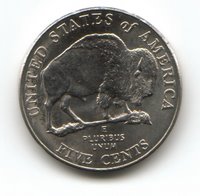Ira Flatow of
National Public Radio's
Science Friday was another featured speaker at this year's SICB meeting in Boston. In fact, he was the opening speaker. I particularly appreciated one response to a question near the end. Someone asked if Flatow could show that his shows (and presumably other science journalism) actually educated people, or if there were mere entertainment.
Flatow immediately responded with the question, that was something like, "Do you have any evidence that entertainment is not also educational?" I clapped at that. Substitute "entertainment" with "engagement" and maybe people will remember the point. Scientists' suspicion of "mere" entertainment is crazy, much like
scientists' distrust of beautiful things.
By curious coincidence, near the end of his talk he hit upon a theme that I'd been listening to in the Scientific American podcast the day before, on the plane to Boston.
Flatow pointed out that when people think of a scientist, they usually think of this guy:

In fact, the person who revolutionized physics with three incredible papers in one year was this guy:

Albert Einstein was doing
astonishing science in his 20s. Flatow said that when we show pictures of scientists to students and others, we should use the second picture and not the first. Because students can't see how they can get to be the first guy (and, I should add, don't want to
think of as that guy), but they might be able to see themselves as the second guy.
This riff came right after I was listening to the
SciAm podcast on Doctor Atomic, an opera (!) about the Manhattan Project. During the discussion with some of the Manhattan Project team, they mentioned most of the people working on the atomic bomb were in their 20s and early 30s. I think Oppenheimer was the "grand old man" of the project at 38!
People
working at NASA during the Apollo moon missions were in their 20s. 26 is the figure given for Apollo 17, one of the later missions; so the average age during the earlier missions like Apollo 11 must have been even slightly younger.
And this being a Darwin centennial, I should point out that Darwin was on a cruise around the world on the Beagle in his mid-20s. Sean Carroll mentioned the youth of Darwin, Wallace and Bates during their adventures far from England
his talk.
Now, people are just barely getting their first "real job" in science usually in their 30s. Academics are maybe getting tenure and stability, and maybe their first stand alone grant, around their early 40s.
The current system is a horrible waste of talent. People are being put on hold for far too long. Is it any wonder that undergraduates who love science look at the length of training to do it as a career and say, "No thanks"?
 Simon LeBon of Duran Duran once described how everyone in the band really, really wanted to be pop stars. And then they realized this would require that they learn how to play musical instruments.
Simon LeBon of Duran Duran once described how everyone in the band really, really wanted to be pop stars. And then they realized this would require that they learn how to play musical instruments.



















